 JUNO Awards week is here and Music Canada is gearing up for another spectacular few days celebrating Canadian music with our friends and partners in the music community.
JUNO Awards week is here and Music Canada is gearing up for another spectacular few days celebrating Canadian music with our friends and partners in the music community.
Last year at the JUNOS we showcased how our advocacy work benefits artists at every stage of their career with our #EveryStage campaign. This year, we aim to highlight the ways we’re working to improve the music ecosystem in Canada. With the support of our members, Sony, Universal and Warner, we’re committed to building a framework where music businesses can thrive, and artists can have sustainable and prosperous careers.
Five major areas in which we are working to create a better Canadian music ecosystem are:
- Improving Policy Frameworks,
- Addressing the Value Gap,
- Diversity and Inclusion,
- Music Cities, and
- Celebrating Success.
IMPROVING POLICY FRAMEWORKS

Music Canada President and CEO Graham Henderson testifies before the Standing Committee on Industry, Science and Technology
A major pillar of Music Canada’s mandate is advocating for a functioning marketplace where music creators are paid fairly every time their work is used.
Copyright is the bedrock of remuneration for the creators of recorded music. It enables them to receive payment when their recordings are copied or played in public, including on the Internet. In the age of streaming, it’s vital that copyright legislation and institutions be adaptive and responsive so musicians and labels are paid whenever their work is commercialized by others.
Some of the ways that we’re working to strengthen copyright and boost investment in music are: successfully championing reforms to the Copyright Board of Canada that will make the Board’s processes faster, more efficient, and more predictable; calling for the elimination of copyright exemptions that syphon value away from music, and; encouraging provincial government investment in regional music economies, such as the BC Music Fund and Ontario Music Fund.
ADDRESSING THE VALUE GAP
 Music Canada has been a global leader in researching the Value Gap – its origins, the economic toll, and practical solutions the Government of Canada can implement to help fix the problem. Throughout the government’s current review of the Copyright Act, numerous music community representatives testifying before government committees referenced our report, The Value Gap: Its Origins, Impacts and a Made-in-Canada Approach, and presented the same four recommendations to government. It was abundantly clear that the Value Gap is a real phenomenon that is hurting creators and that it needs to be addressed. Its harm is felt across the music community – everyone from publishers and composers, to labels, and especially artists, are at a disadvantage because of outdated copyright legislation.
Music Canada has been a global leader in researching the Value Gap – its origins, the economic toll, and practical solutions the Government of Canada can implement to help fix the problem. Throughout the government’s current review of the Copyright Act, numerous music community representatives testifying before government committees referenced our report, The Value Gap: Its Origins, Impacts and a Made-in-Canada Approach, and presented the same four recommendations to government. It was abundantly clear that the Value Gap is a real phenomenon that is hurting creators and that it needs to be addressed. Its harm is felt across the music community – everyone from publishers and composers, to labels, and especially artists, are at a disadvantage because of outdated copyright legislation.
Because artists are the motor that drives the music industry, and the storytellers that music fans fall in love with, they are best equipped to communicate the serious and erosive effects the Value Gap is having on their careers, their economic livelihoods, and the wider music community.
Music Canada is committed to supporting artist advocacy, because their stories truly resonate with the public and political decision-makers. We do this through support for discussions at music conferences, economic forums, and spreading the voices of artist advocates at our events and in our reports.
DIVERSITY AND INCLUSION
In 2017, Music Canada embarked on an exhaustive organizational review to provide recommendations on ways we could demonstrate leadership in inclusion and good governance. At our annual Playback event in October 2018, we announced preliminary results of this review, including the addition of two new independent member positions on our Board of Directors to bring representation of women on our Board to 40%. We look forward to announcing further details on ways we’re working to reflect the exquisite mosaic that is our Canadian music community in the coming days.
Bringing measurable inclusivity and accountability for the music industry was the topic of one of our major annual events in 2018 called the Global Forum at Canadian Music Week. We were proud to host Dr. Stacy L. Smith of the Annenberg Inclusion Initiative, the leading think tank in the world studying issues of diversity and inequality in entertainment. Dr. Smith pioneered the now popular “Inclusion Rider,” and at the Global Forum, spoke to her organization’s research into inclusion in the music industry.
During JUNOS Weekend 2019, we’re pleased to be supporting CARAS’ Allies in Action event, focusing on action undertaken or underway in the Canadian music community to create safer and more inclusive workplaces and environments for industry members, artists and music fans.
MUSIC CITIES
Since the publication of our 2012 report Accelerating Toronto’s Music Industry Growth, Leveraging Best Practices from Austin, Texas, Music Canada has become an internationally renowned source for research into policies municipalities can implement, and actions they can take to activate the full potential of their music economies. Our leadership in Music Cities was further cemented with the publication of our groundbreaking The Mastering of a Music City report in 2015.
Since the release of these reports, we’ve seen phenomenal traction in Canadian cities like Smithers, Vancouver, Toronto, Ottawa and 2019 JUNO Awards host city London. These cities have all formulated an official music strategy, and some have established a music office, or officer position, within their municipality.
In addition to presenting our research at Music Cities events across the globe , Music Canada will host its third annual Music Cities Summit at Canadian Music Week in May of 2019. Look out for details on the 2019 Music Cities Summit, including featured speakers and other program elements in the coming weeks.
CELEBRATING SUCCESS
Music Canada is proud to return as a sponsor of the Album of the Year category, as well as the Presenting Sponsor of the Chair’s and Welcome Reception on Friday, March 15. With our sponsorship of the category and continued partnership with the JUNO Awards, we join music fans across the country in celebrating the works from this year’s nominees – Hubert Lenoir, Jann Arden, Shawn Mendes, The Weeknd, and Three Days Grace – and congratulate the dedicated label and production teams involved with each release.
Throughout the year, we also join fans in celebrating their favourite artists’ first certification milestones to a lifetime’s worth of achievements with our historic Gold/Platinum program, which was launched in 1975 to celebrate milestone sales of music in Canada. Today, artists can receive new certifications for the combined sales and stream equivalents of their singles and albums, and are often surprised with a tangible recognition of national success by their labels’ devoted teams. Certifications are shared on our Gold/Platinum Twitter, Instagram, and Facebook accounts, and the latest Gold certifications are added to our #GoldinCanada playlist every Thursday.
Music Canada also presents two awards, our President’s Award and Artist Advocate Award, during Playback, our annual industry dialogue and celebration. So far, artists Miranda Mulholland (2017) and Loreena McKennitt (2018) have been honoured with the Artist Advocate Award in recognition of their outstanding advocacy efforts to improve the livelihoods of music creators. Meanwhile, the President’s Award, which is presented to an individual working outside the music community who displays a deep passion for music and the people who make it, has been received by Music Cities champions including former Toronto City Councillor Josh Colle (2018), and co-recipients Cory Crossman, London Music Industry Development Officer, and Chris Campbell, Director of Culture and Entertainment Tourism at Tourism London, who were instrumental in bringing the JUNOS to London this weekend for the very first time.
A full rundown of JUNOS Week events is available on the JUNO Awards website. Tickets to The 2019 JUNO Awards Broadcast are available online at budweisergardens.com, by phone at 1-866-455-2849 and in-person at the Courtesy Ford Box Office at Budweiser Gardens (Located at Gate 1).











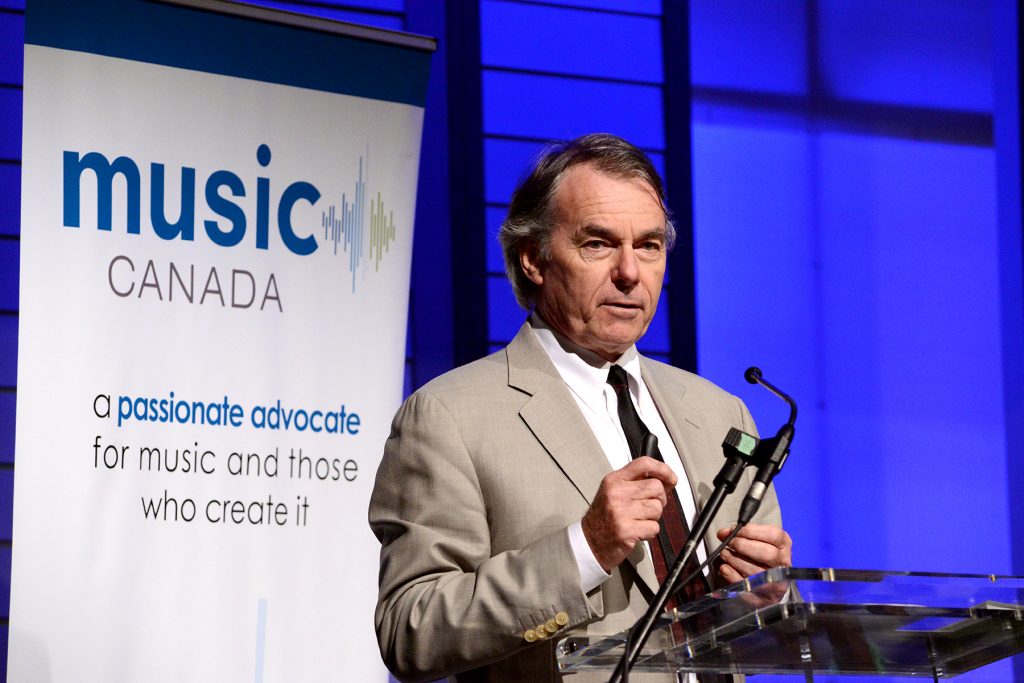
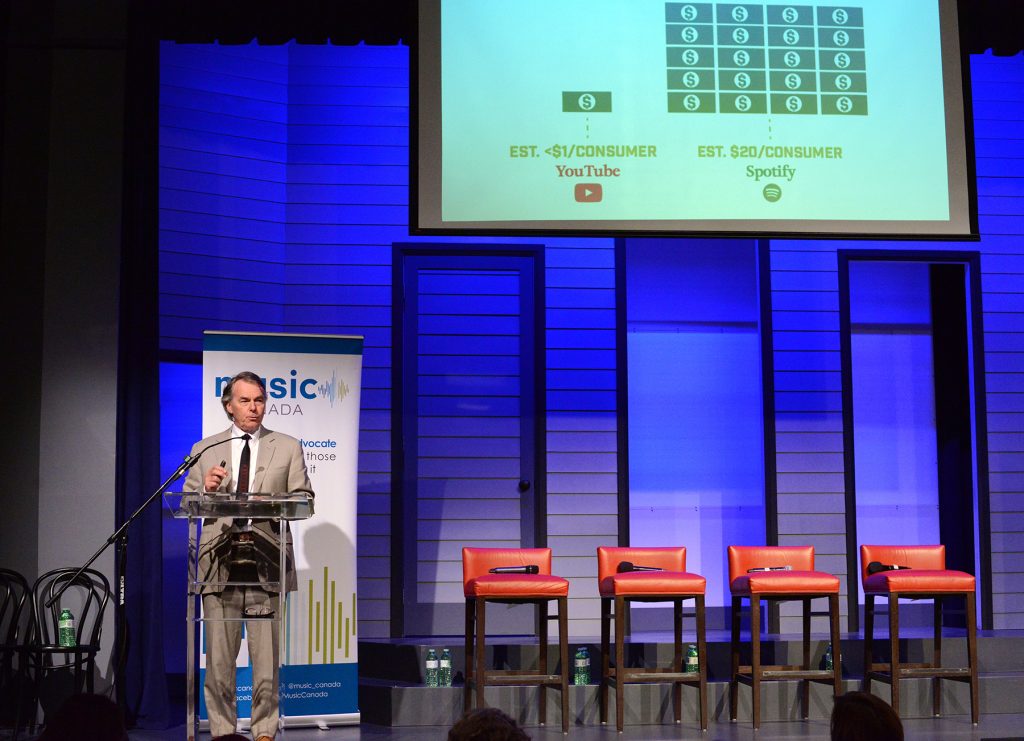
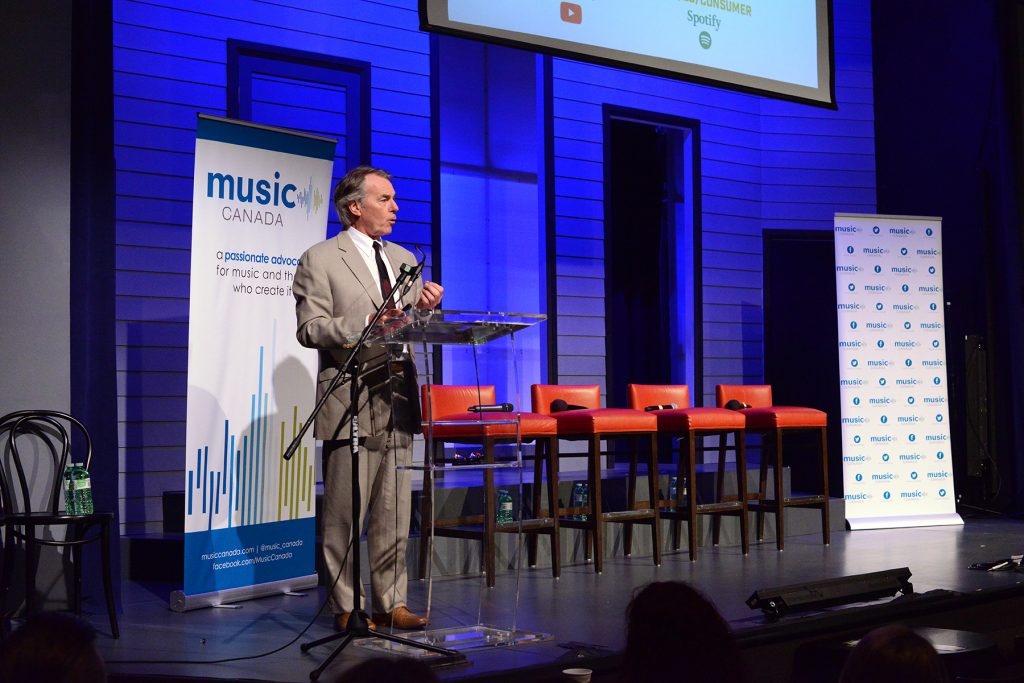

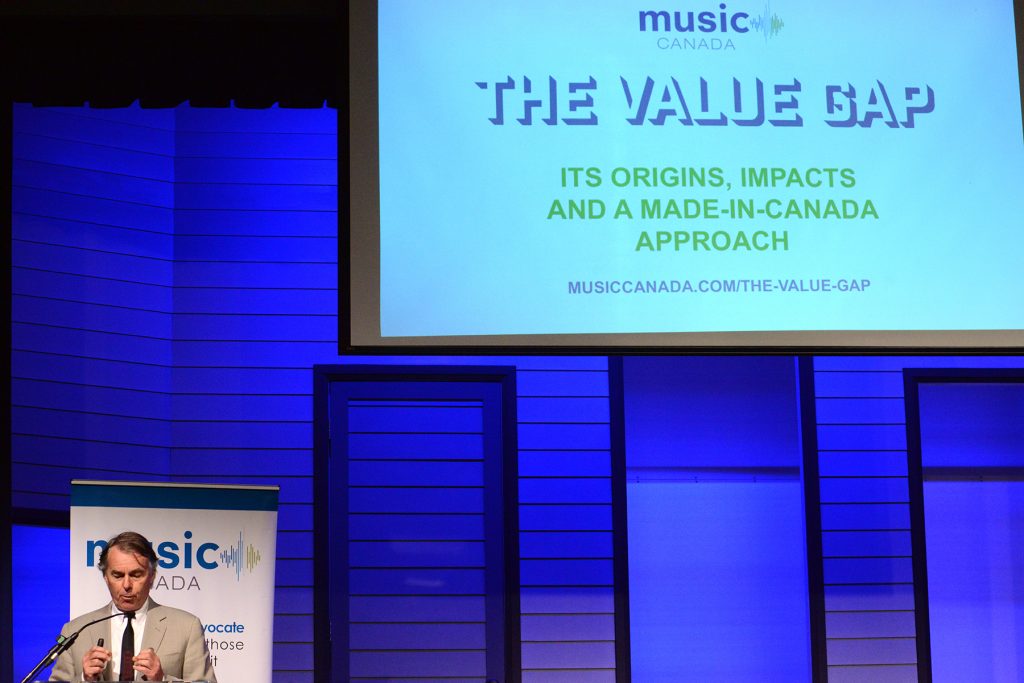
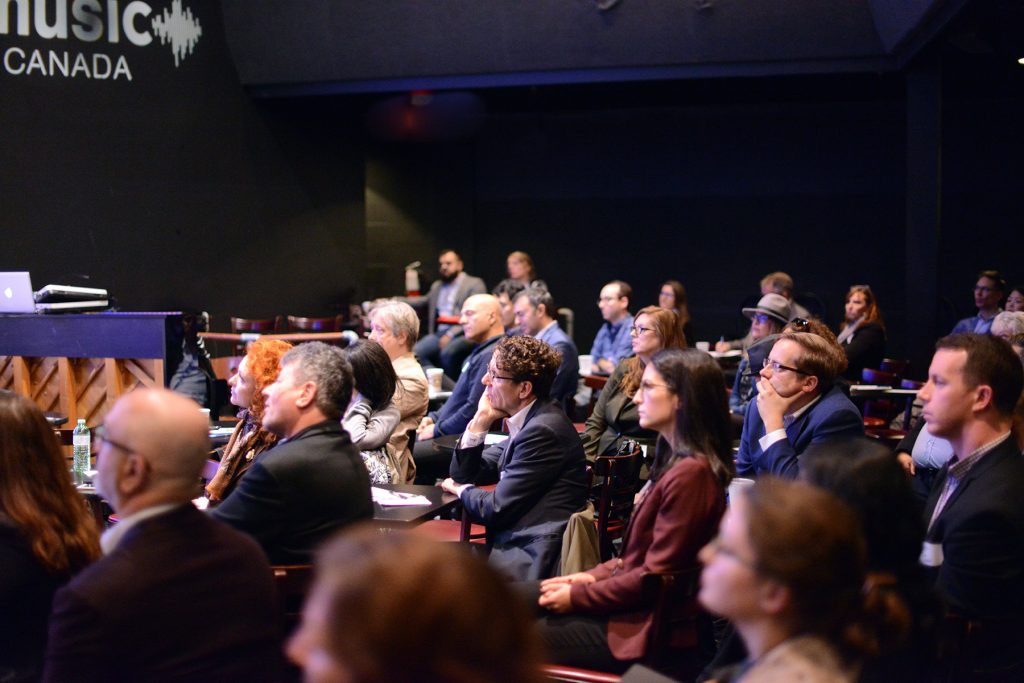
Music Canada